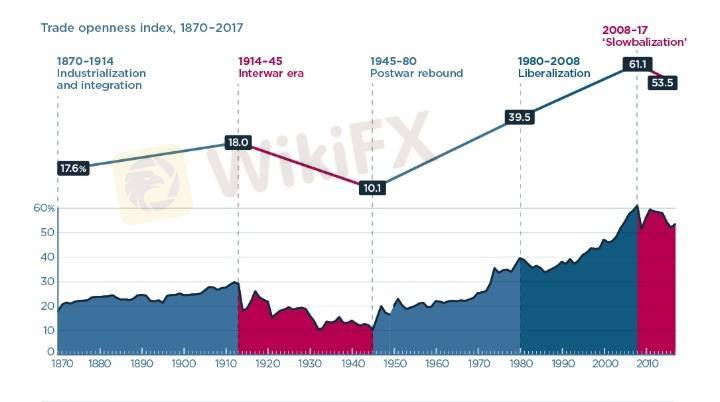
2025-02-15 03:05
NgànhGlobalization and deglobalization
Globalization and deglobalization are two opposing trends shaping the modern world. Here’s a breakdown of both:
Globalization Trends
Globalization refers to the increasing interconnectedness of countries through trade, technology, culture, and politics. Recent trends include:
1. Digital Transformation – The rise of the internet, AI, and cloud computing has made global communication and collaboration easier.
2. Global Supply Chains – Companies source materials and labor from multiple countries to optimize costs and efficiency.
3. Cultural Exchange – Streaming services, international travel, and social media spread cultural trends worldwide.
4. Remote Work & Online Learning – Technology enables cross-border work and education, making global talent more accessible.
5. International Trade Agreements – Organizations like the WTO promote trade liberalization and global economic cooperation.
Deglobalization Trends
Deglobalization refers to the retreat from global interdependence, often driven by political, economic, or security concerns. Recent trends include:
1. Supply Chain Reshoring – Companies bring production closer to home to reduce dependency on foreign suppliers.
2. Rise of Nationalism – Countries prioritize local interests, leading to stricter immigration and trade policies.
3. Regionalization – Instead of global partnerships, nations focus on regional alliances (e.g., African Continental Free Trade Area).
4. Cybersecurity & Data Sovereignty – Governments push for local data storage and tighter regulations on international tech firms.
Both trends are occurring simultaneously, with some industries embracing globalization while others push for more localized control. Which aspect interests you more?
#firstdealofthenewyearstlz
Thích 0

BamiCreative
Sàn giao dịch
Bình luận phổ biến
Ngành
Có cao quá k?
Ngành
Xin ý kiến liberforex
Ngành
Đầu tư CDG
Ngành
Cắt lỗ
Ngành
Có nên chốt lỗ?
Ngành
Hỏi về dòng tiền
Phân loại diễn đàn

Nền tảng

Triển lãm

IB

Tuyển dụng

EA

Ngành

Chỉ số thị trường

Chỉ số
Globalization and deglobalization
 Hong Kong | 2025-02-15 03:05
Hong Kong | 2025-02-15 03:05Globalization and deglobalization are two opposing trends shaping the modern world. Here’s a breakdown of both:
Globalization Trends
Globalization refers to the increasing interconnectedness of countries through trade, technology, culture, and politics. Recent trends include:
1. Digital Transformation – The rise of the internet, AI, and cloud computing has made global communication and collaboration easier.
2. Global Supply Chains – Companies source materials and labor from multiple countries to optimize costs and efficiency.
3. Cultural Exchange – Streaming services, international travel, and social media spread cultural trends worldwide.
4. Remote Work & Online Learning – Technology enables cross-border work and education, making global talent more accessible.
5. International Trade Agreements – Organizations like the WTO promote trade liberalization and global economic cooperation.
Deglobalization Trends
Deglobalization refers to the retreat from global interdependence, often driven by political, economic, or security concerns. Recent trends include:
1. Supply Chain Reshoring – Companies bring production closer to home to reduce dependency on foreign suppliers.
2. Rise of Nationalism – Countries prioritize local interests, leading to stricter immigration and trade policies.
3. Regionalization – Instead of global partnerships, nations focus on regional alliances (e.g., African Continental Free Trade Area).
4. Cybersecurity & Data Sovereignty – Governments push for local data storage and tighter regulations on international tech firms.
Both trends are occurring simultaneously, with some industries embracing globalization while others push for more localized control. Which aspect interests you more?
#firstdealofthenewyearstlz
Thích 0
Tôi cũng muốn bình luận.
Đặt câu hỏi
0bình luận

Chưa có người bình luận, hãy là người bình luận đầu tiên

Đặt câu hỏi
Chưa có người bình luận, hãy là người bình luận đầu tiên